Brace yourself. I'm going to use a buzz word. Maybe that’s two words. Anyway. Here’s a definition of self-care that I love from Psych Central: “Self-care is any activity that we do deliberately in order to take care of our mental, emotional, and physical health. Although it’s a simple concept in theory, it’s something we very often overlook. Good self-care is key to improved mood and reduced anxiety. It’s also key to a good relationship with oneself and others.” Deliberately. You have to do it deliberately. Plan for it. Schedule it. Make it part of your routines. Also note, that it doesn’t just help you. It helps others because it makes us better partners and collaborators. You’ll be less stressed, healthier, more patient, and probably more kind. Taking good care of ourselves now is perhaps the most important thing we can do . It will prevent burn out and boredom and restlessness that will help us stay home and flatten that curve. But, I would argue that for non-profit pros, it's absolutely essential. Here's why: Non-Profit Professionals and Self-CareSurely you know, that non-profit and fundraising roles can be extremely stressful and that was true long before COVID-19. The Chronicle of Philanthropy ran an article in August of 2019 about new research showing that 30% of fundraisers plan to leave the field entirely in the next two years! There are many reasons for this startling statistics, here are a couple:
I can guarantee that the "tremendous pressure to succeed" will only increase as we move through the coronavirus crisis and into the recovery phase. What does all this have to do with self care? You might ask.Well, in order to be the absolutely All-Star Fundraiser I know you can be, you have to be your best self. You can’t succumb to nonprofit burnout. The industry needs folks like you to stay in fundraising. With 3 out of 10 fundraisers planning to depart the entire sector (before this crisis), nonprofits will need YOUR unique skills. So, I’m going to encourage you to take care of you. Shouldn't we be lobbying for a better budget, higher salaries, more cooperative leadership, and more reasonable goals? bsolutely! In order to do that, you have to be in top form. You will need even more resilience to raise amazing amounts of money while also changing an industry. I’m going to challenge you just to go just a bit further in taking excellent care of yourself. Self-care: it isn't (all) about crystals and bubble baths!Self-care has this modern connotation of it being something over-worked wine mommies do. They're looking for a "Calgon-Take-Me-Away" bubble bath. (I just totally dated myself with that commercial reference, didn't I?) While those sorts of indulgences and treats do have a place in a well-rounded self-care regimen, they are not the core of a self-care practice. It is not our grand gestures that keep us healthy in body, mind, and spirit, but the small things we do daily. You can quote me on that one. You need to identify small, sustaining daily habits that can be done on 80-90% of days to help you be in the best form for yourself and others. To help you build that practice, I've created the Self Care Mind Map and the 90 Day Habit Tracker. (To download both files in PDF format, as well as view my entire Self-Care for Non-Profit Pros webinar, click here.) The process starts with the Self-Care Mind Map. Self-Care Mind Map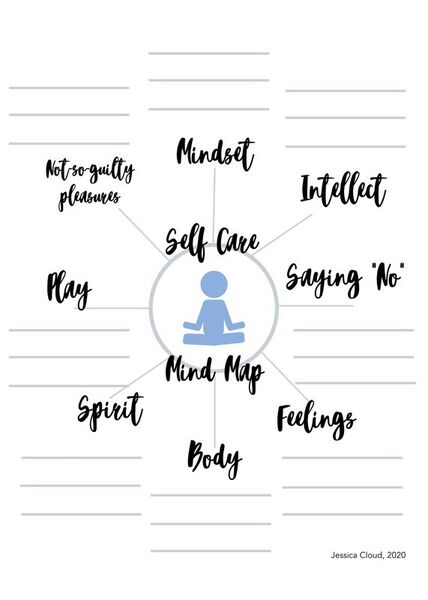 The Self-Care Mind Map is divided into eight areas of our life and I want you to stretch yourself and think of three things you could do in each category that would improve your quality of life. You are not committing to doing any of these things at this point. Just write whatever comes to mind. Mindset You need to fill your brain with a positive can-do attitude and your mind needs to just rest and be clear sometimes. For my Mind Map, I put that I could listen to positive podcasts, meditate for at least five minutes per day, or take periodic detox breaks from social media. Yours might include affirmations, visualization, reading self-help books, or audiobooks. There are so many options to build a healthy, resilient mindset. Intellect Generate some ideas about how you can feed your mind. For example, I love documentaries, about the British Royal Family and World War II (bonus if it’s about both)! I also like to read on many different topics and I like learning foreign languages using the Duolingo app. Saying “No” It might seem like we are having to give up too much these days. But think about what causes you unnecessary stress or takes away too much time. For me, I don’t consume news in excess and I’m working really hard to stop scrolling on my phone in the mornings. Feelings If we don’t acknowledge and process our feelings, they either appear in the body as illness or they manifest in destruction behaviors (like addiction) and interpersonal patterns (codependency). I wrote on my Mind Map that could set firm boundaries about my needs, practice focusing on what I can control, and I free-write in my journal three quick pages most mornings. (Morning pages is a practice from The Artist’s Way by Julie Cameron and I highly recommend this book for any creative person.) Yours may be committing to attend 12-step meetings (yes, they have lots of these online and via phone these days), visiting a counselor (also available online), or writing a letter to express a long-held grudge (even if you don't send it). What, if you were deeply honest with yourself, do you need? Body There are endless options for this category: you could floss more regularly, lift weights, eat more vegetables, go for a daily walk, get 8 hours of sleep most nights, the list goes on and on. The challenge here is to narrow it down to what you most need and what will truly provide you with the most benefit. Oh yeah! And it has to be something that you can and will do! My two that make me feel amazing are daily yoga practice of at least 15 minutes and getting 10,000-15,000 steps on my Fitbit daily. Spirit Even if you are a hard-core atheist, you still need to attend to your spiritual side (even though the word “spirit” might make you bristle a little). Hear me out: Even if you don’t go to church, do you have a community, a strong friend group that you can rely on. Do you sing daily? Singing is a powerful kind of psychological medicine. I also like reading poetry (and writing it too). What other things can you think of to nourish your sense of wonder and awe at this whole being human thing? Play Play has a few particular characteristics. First, play is pleasurable. Sounds like “duh!” but things in this category should be fun. Second, we enter into play voluntarily and most often it is self-chosen and self-directed. So, no putting things you think you “should” do in this category. Play makes us feel like we can do it all day. There’s a feeling of time not moving when you play. My kids help me play. These days, we love having family game nights and family movie nights. Those are precious moments, yes. But I also enjoy them because they are fun for me. Not-so-guilty pleasures Now, we are really getting into the nitty-gritty. This is where you can let loose a bit. What are three things you might call “guilty pleasures”, the things you are a little embarrassed to admit to someone you respect that you enjoy. I love a good bath. But, that’s become like the stereotype of the harried mother trying to do self-care. Still, it’s a happy place for me. I also love showtunes! And I have an entire collection of vinyl records from Broadway and movie musicals because no one else wanted to buy them! I also love really giant (like Alice in Wonderland-style) ridiculous cups of hot tea. This list will be your go-to when you are ready to indulge. 90 Day Habit TrackerOk, now that you’ve filled out your entire mind map, pick 3-5 that you know would improve your quality of life if you did them every day (or most days). If you do this with 80-90% adherence, I’m telling you it will completely change your life. Feel free to throw out a habit if it doesn’t work after a couple of weeks or a month, then replace it with something else. You can also change the duration that you do one practice. For instance, if you started off with 20 minutes of meditation and you find you cannot fit that in, drop the goal to only 5 minutes a day. Have fun figuring out what makes you feel the best. Back in 2017, I set myself a challenge like this. I wanted to do #yogaeverydamnday and get 10,000 steps every day for 30 days. At the end of that month, my mind was sharp and clear, I had lost a bit of weight without much strenuous effort (and while eating pasta and cannoli when traveling), and when I woke up in the morning I didn’t creak with aches and pains. It was nothing short of remarkable. When I described the amazing benefits I gleaned from this experiment to my aunt, she stared at me seriously and asked, “Well, why the hell did you stop?” I did not have any good reason. At that point I realized I needed to build this into my life in a sustainable way. There will be days that I twist my ankle and can’t achieve the 10,000 steps. There will be days that I'm too busy with meetings for yoga. That’s ok, too. But working toward 80-90% adherence to healthy habits bring tremendous results. ConclusionAlso, please remember to find beauty and practice gratitude. I have been snapping pictures of flowers every day, because I’m so genuinely grateful that I can get outside and walk. The weather has been beautiful here (whereas my brother and his family are stuck in late season snow in Colorado) and I have other friends who are stuck inside their homes for the foreseeable future. So, the best thing we can do for ourselves and others right now is to look inward and tend to ourselves like one would tend a garden, cultivating compassion for self and others. The result will be grace. Grace for ourselves, for our families, our kids, our elders, the healthcare workers, the UPS drivers, our neighbors, everyone we interact with. And please tip your cashiers and delivery drivers very generously, as you are able. To get through all of this, we will need to take this extra time at home with our family to cultivate our best habits of self-care, which will fortify our body, mind, and spirit. These practices will give us the resilience we need to get through this crisis successfully and come out the other side of stronger in many ways. If you already have a self-care practice, what does that look like for you? If you used the Self-Care Mind Map, what kinds of things did you come up with to try? Did any of them surprise you? In a couple of weeks, I want to know what benefits you've been able to garner from making some of those things habits? Please let me know in the comments below. And of course, if any of this stirred up questions, send me your question in the comments and I'll address it. Cheers, Jessica Cloud
PS – If you liked this post, you might also like these:
PPS - If you found this article helpful, please comment and let me know. Also subscribe to Real Deal Fundraising so you don't miss a post! I feature a new blog post every Thursday and when you subscribe you’ll start to receive my FUNdraising Friday emails where I bring you curated information and super cool freebies exclusively for my subscribers! This sign hung in my various offices for over a decade. I guess you could consider this a motivational poster of sorts, but I think it was actually a very early meme. These two sentences have become my fundraising mantra. Something I repeat to keep myself focused and to cope when things get rough.
Because I’m both a nerd and a yogi, I looked up “mantra” in the Oxford English Dictionary. The term “mantra” comes from Sanskrit and the root words mean basically: "thought support" or device to support thought and action. This is exactly what this simple sign has been for me throughout my career. Even the repetitive rhythm of it helps in its function as thought support. The main thing is to keep the main thing the main thing. Raising money is the main thing. Let me tell you the story of this mantra: To give credit where it is due, the original sign was created for me by Mark Nelson, who was the Treasurer for the Libertarian National Committee (the Libertarian Party) in 2004-2005. So, he was a board officer for the organization I was working for at the time. I was the only full-time fundraiser for the national organization and I was only 23 years old. Their theory was to hire smart young people who would be “cheaper” salary-wise for the DC area. The exchange was that I would get a ton of valuable training and experience and they would get energetic labor. However, I was overwhelmed and I think Mark sensed it. I was managing a conversion from an antiquated custom donor database to Raiser’s Edge. I was producing a monthly newsletter for our recurring donors. I was helping to plan the national convention and scouting locations for the next convention. I was recruiting and training paid callers to renew memberships via phone and managing our intern program. With the help of a consultant, I was managing monthly direct mail campaigns and planning fundraising events. Then, because the LP was a political organization, staff frequently got pulled into controversies and political discussions. I’m tired and anxious just typing about everything I was called to do. As treasurer of course, Mark had a keen interest in keeping me motivated. On a trip to our DC office, he walked in and taped the sign to the wall above my computer monitor and explained what it meant. The “main thing” meme helped me to prioritize my work and keep my head on straight. It also reminded me that the officers of the organization supported me in my main role. My job as a fundraiser is revenue generation. Everything else must fade in comparison. When I left the LP, I took this simple sheet of copy paper with me and posted it in my new office at the University of South Carolina. This concept continued to keep me focused as I was hiring 110 student callers per semester to raise $1.47 million via phone annually. When I took a job as behind-the-scenes project manager with RuffaloCODY (now Ruffalo Noel Levitz), I would see the sign and feel sad. I knew then that I missed frontline fundraising. I missed chasing down a dollar goal. It helped me navigate my career back to raising money. At some point in changing offices, the original paper got ragged and I disposed of it. But, when I was at Southern Miss and we tripled our annual fund income in one year, I recreated the poster for some of our gift processors who were overwhelmed and wanted a reminder of how their work connected to the big picture. It became a bit of an office-wide mantra. Now that I’m back at a small shop, I think of this mantra often. I try hard to “stay in my lane” and keep the focus on fundraising. There is much to do, the need is great, and it is easy to feel like you are never doing quite enough. But, the main thing . . . is to keep . . . the main thing . . . the main thing. And, raising money . . . is the main thing. At any organization, you will be asked to do many mundane things (I collectively call them TPS reports). These include: expense reports, submission forms, demographic changes in database, meetings, etc. Do these things, but strive to automate those tasks as much as you can so that they don’t distract you from the main thing: raising money. At some organizations, especially those that are not organizationally mature, fundraisers will get pulled into political discussions and controversies. Continue to come back to mission and how the main thing (fundraising) supports that mission. When people around you go low, you go high. Keeping focused on raising money is the high road. The main thing is to keep the main thing the main thing. Raising money is the main thing. What’s your fundraising mantra? How do you keep yourself focused? Comments and questions are, as always, welcomed and encouraged! Cheers, Jessica Cloud PS – If you liked this post, you might also like these:
PPS - If you found this article helpful, please comment and let me know. Also subscribe to Real Deal Fundraising so you don't miss a post! You'll get my guide to Call Center Games for Free! Part of my mission at Real Deal Fundraising is to support young fundraising professionals so that they stay in this industry and grow their careers.
To that end, I’ve been thinking about which skills I would advise a new fundraising professional to cultivate in order to have the best chance of career success. Here’s my list in no particular order
Most of these are abstract skills and really more traits that you can cultivate. All of them can be developed and maintained. Of the eight, I believe “Integrity” is the most important because it is foundational. The rest simply don’t matter without it. Second most important, in my estimation, is curiosity because it is engine behind your growth in this industry. Even if you have all of the other skills, you won’t keep up with the changes and trends without the drive to continually learn. To that end, I’ll continue to provide information and resources here on Real Deal Fundraising so the professionally curious can get the ideas they need to succeed as fundraising professionals. Did I overlook an essential fundraising skill? What would you add to this list? Comments and questions are, as always, welcomed and encouraged! Cheers, Jessica Cloud PS - If you liked this post, you might also like these:
PPS - If you found this article helpful, please comment and let me know. Also subscribe to Real Deal Fundraising so you don't miss a post! You'll get my guide to Call Center Games for Free! I know it's so superficial and perhaps shallow.
But nonetheless, it's true. One of the reasons that I love being a fundraiser is the FOOD. It's no secret to anyone in the industry that we fundraisers love to eat. We like to take donors to dinner, to lunch, to have breakfast, to have coffee, or to meet for dessert. We like to do anything that will help us break bread with people because it is such a primal way to build relationships. It's a core aspect of hospitality to provide food to someone we are grateful for. And it is just a nice perk of the position. Fundraising is tough work and you get told no an awful lot, so getting a yummy meal brings balance to the universe. And inevitably as a fundraiser, you'll end up involved in event planning. Attending a tasting session for an important event is so much fun. I hope for each of you that one day you have enough positive career karma to get to sample delicious menus including desserts and wine. It's bliss. Truly. Despite the fact that it's a superficial reason to love my career, the food is some small compensation for having to ask people to share their hard-earned funds with our organizations. Bon appetit! When I was a young call center manager, I thought I would end up being a faculty member at a university. That was my career goal. I was totally opposed to making fundraising into a career rather than a job.
Then, one night I decided to mess with my callers just a bit. I had a cubicle in the corner of the call center. I shouted over the wall at around 8:00 PM that I had moved them ALL into credit card calling pools. Of course, since everyone they were talking with had both given before and given via credit card, they were excited. Sure enough, gifts picked up and in that last hour, the credit card rates were over 70%! The secret was that I hadn't done anything at all, except changed their expectations. At this point, I realized that I really liked the strategy and psychology in this field. I liked examining results and figuring out where things worked or didn't work and why. As I grew in my career, I loved the organizational challenges thrown at me. You have to have a strategy when you are trying to clean up a building project where naming opportunities might have been double-booked. Most of all, monitoring my own mindset is part of the strategy that keeps my mind stimulated. Smile when you dial is one of the most important lessons I ever learned. I never do the same thing day-to-day and there always a new challenge on the horizon, requiring a fresh strategy. If you are interested in the other reasons that I love being a fundraiser, check the posts out:
Motivation Monday: Reasons I love being a fundraiser, Colleagues and Donors #loveyourcareer10/3/2016
Fundraising is about relationships. If I had a nickel for every time I’ve heard that, I wouldn’t need to work and I could make a major gift to my favorite organization today.
The thing is – it’s true. Not only do fundraisers serve as the conduits between donors and the institutions that they serve, but we also work collaboratively within our offices, with program staff, and with others in our industry. One of the reasons I love my job is that it has given me these amazing relationships. You get to know donors on a personal level and even when you leave one organization, sometimes you remain friends with them. Your donors have incredible stories and you have a platform to discover those stories and share them. Many donors, especially board members, have become personal mentors to me. We are also lucky to work in an industry that loves to share best practices and business information. Especially in higher education fundraising, we aren’t often competing for the same donors. That means we can help each other out substantially. Many of my closest friends are also fundraisers and we frequently solicit advice and tips from each other. Not all donors and co-workers become your friends. But, it’s a wonderful career that is focused on friendship. I would put up with a good deal of frustration to get the collection of amazing donors I’ve met and colleagues that I’ve relied on over the years. Among office workers, fundraisers are some of the toughest folks out there. #1 you have to develop the gumption to ask on a regular basis and #2 you get told “No” a lot. If you’re doing it right, you get told no more often than yes, a good deal more often. Lastly, fundraisers have to do this knowing that most of our organizations have persistent need and you’ll be asking year after year. Even if you finally complete a campaign or finally raise an endowment, there are always more people to help and more programs to create.
Is it fun to get told "no"? Nah, but what it does for fundraisers is builds resiliency. Fundraisers become warriors. They take their mission out there and champion it no matter the cost to their own egos. For example, it is such a feeling of freedom when you realize that if you expect 20% of your prospects to make a gift, which means 80% won’t! How wonderful to know that you can be told no that many times and it constitutes SUCCESS! Without having been a fundraiser for so long, overcoming obstacles and the fear of failure might have held me back in my career and in life. But, I’ve fallen off that bicycle so much and had to get back on immediately, it just doesn’t bother me much anymore. I have fundraising to thank for giving me such a steely outlook. Ironically, it’s getting told no that signals that you are asking enough. And it’s continuing to ask even though you get told no that makes fundraisers resilient. That’s another reason why I love my career in fundraising. (I'm back!! Last week was crazy but the full moon has passed and hopefully the insanity level has slowed in all areas of my life.
I've decided to make Motivation Monday into "Reasons why I love being a fundraiser" for the next ten weeks. It will challenge me to articulate the reasons why I love my profession and hopefully it will inspire and motivate you to love your career. My first reason why I love fundraiser is the travel. For a long time, I stayed away from the travel and thought it would hold me back in my career. But in my current position, I am the lone professional fundraiser for an institution and I must travel. Now, I embrace the travel and see it as a benefit. Sometimes I travel with my husband and kids (we homeschool) and sometimes I travel alone. Either way, in this past year, I've been able to visit amazing places and meet amazing donors. (All photos above were taken by me on work trips.) I was able to have breakfast by the Pacific Ocean in Santa Barbara one morning before flying home -- a rare contemplative moment of solitude with nature for this busy mom. I've taken my family on a train from Oakland to Portland and we woke up in a winter wonderland watching eagles dive into lakes amongst snow-covered Douglas firs. I feel certain these are experiences that we would not have had if I wasn't a fundraiser. And this literary nerd has gotten to see the pew that Ralph Waldo Emerson used to sit in when he attended church in Concord. I've taken my 7 year old daughter to see the ruby slippers from The Wizard of Oz at the Smithsonian. She also got to visit FAO Schwartz before it closed forever. Of course, we could have done this on our own as a family, but it isn't likely we would have been able to afford it. These magic moments happened because I am in a industry that still depends on a values face-to-face contact. Traveling to visit with the amazing folks that support the institution that I work for is its own reward and its an amazing perk. Stay tuned for another reason next Monday and more great content coming up all week. |
Jessica Cloud, CFREI've been called the Tasmanian Devil of fundraising and I'm here to talk shop with you. Archives
June 2024
Categories
All
|
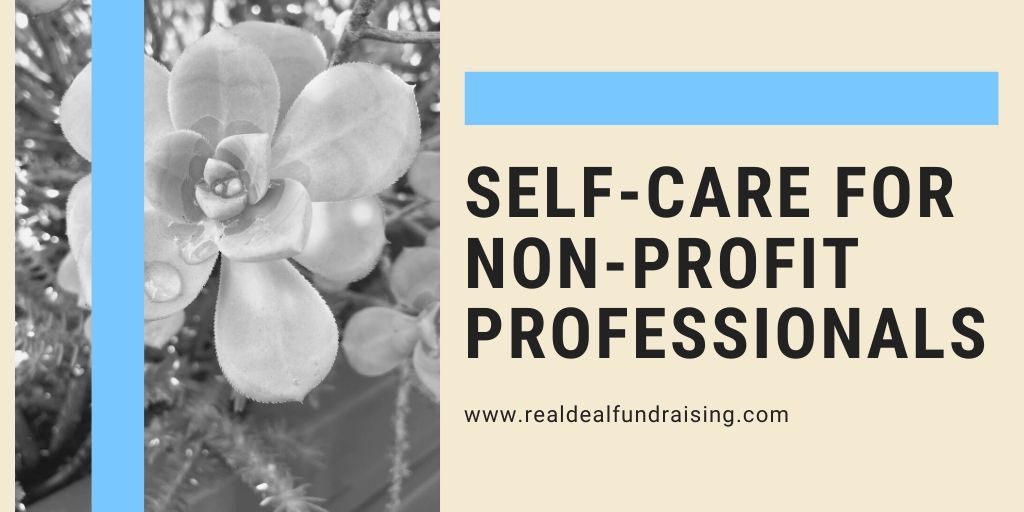

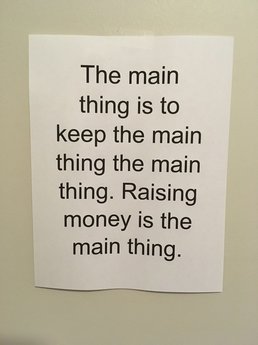
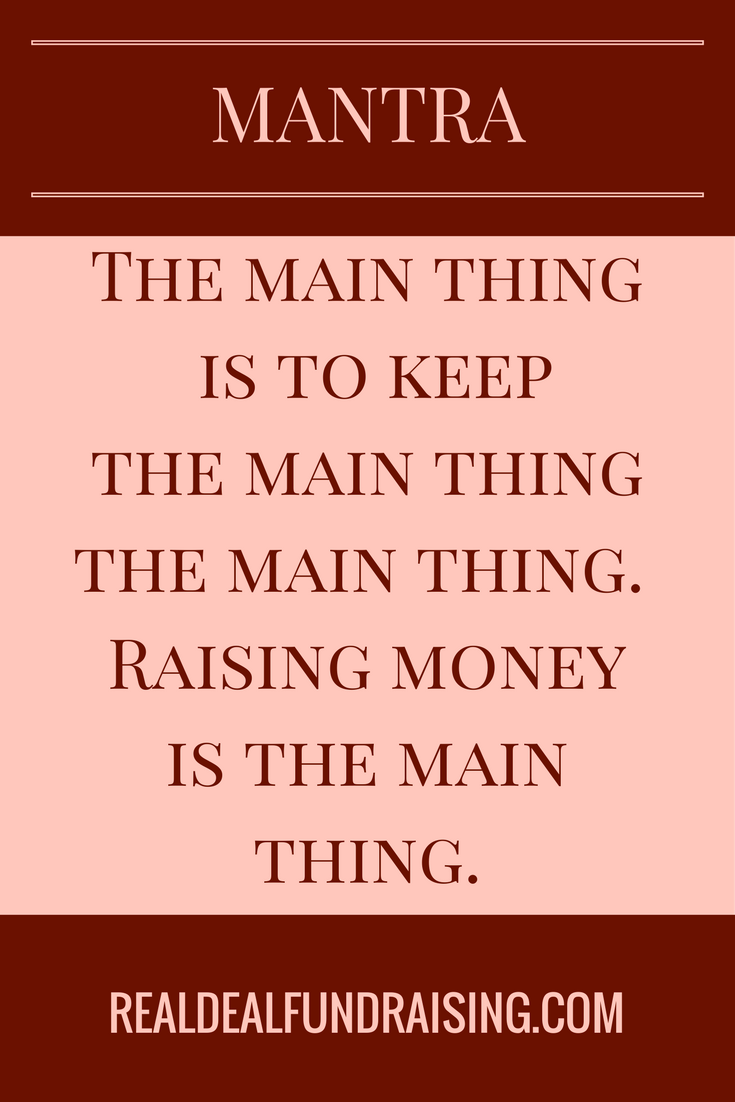
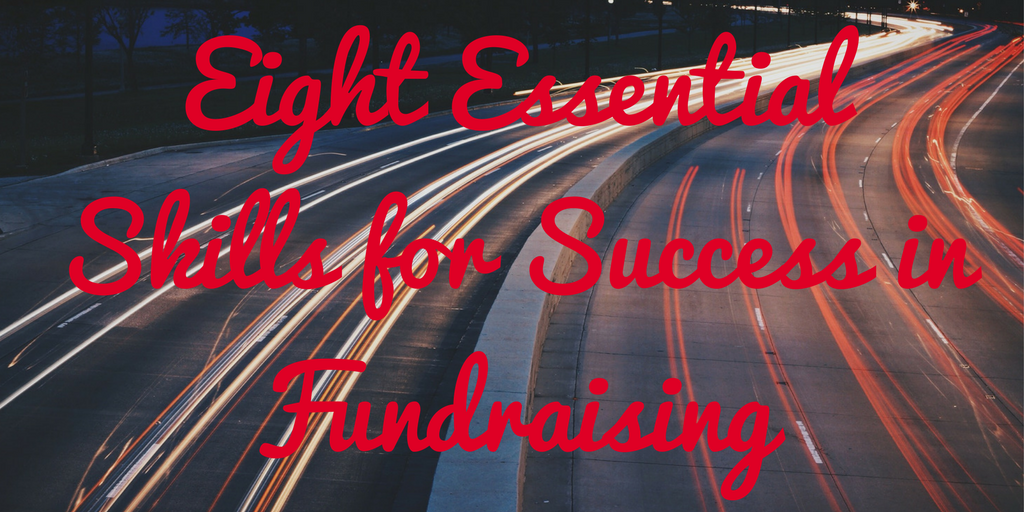
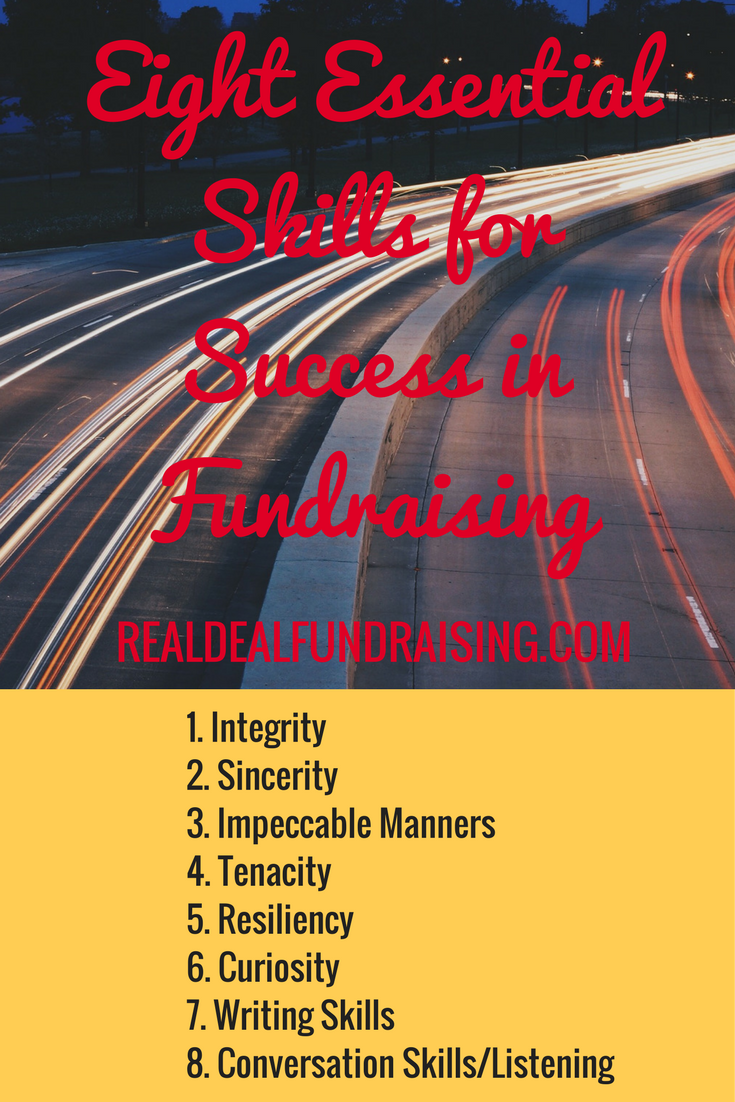



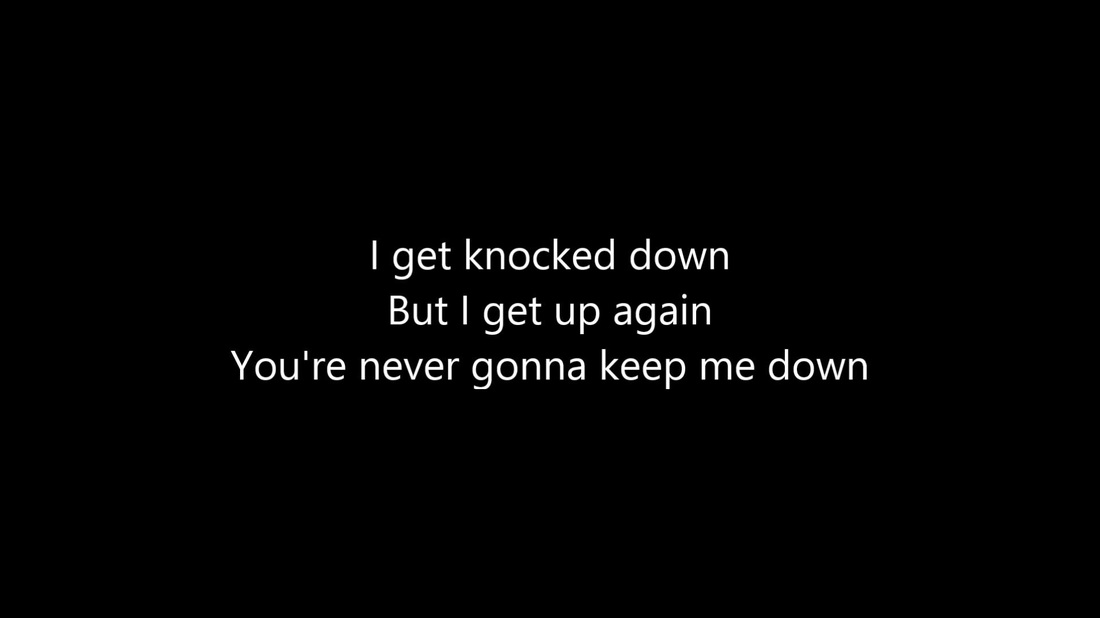
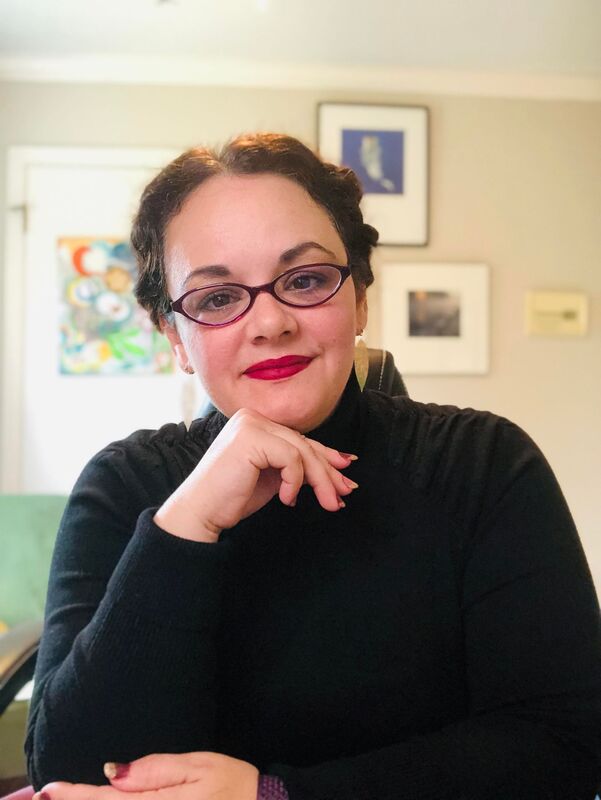
 RSS Feed
RSS Feed
